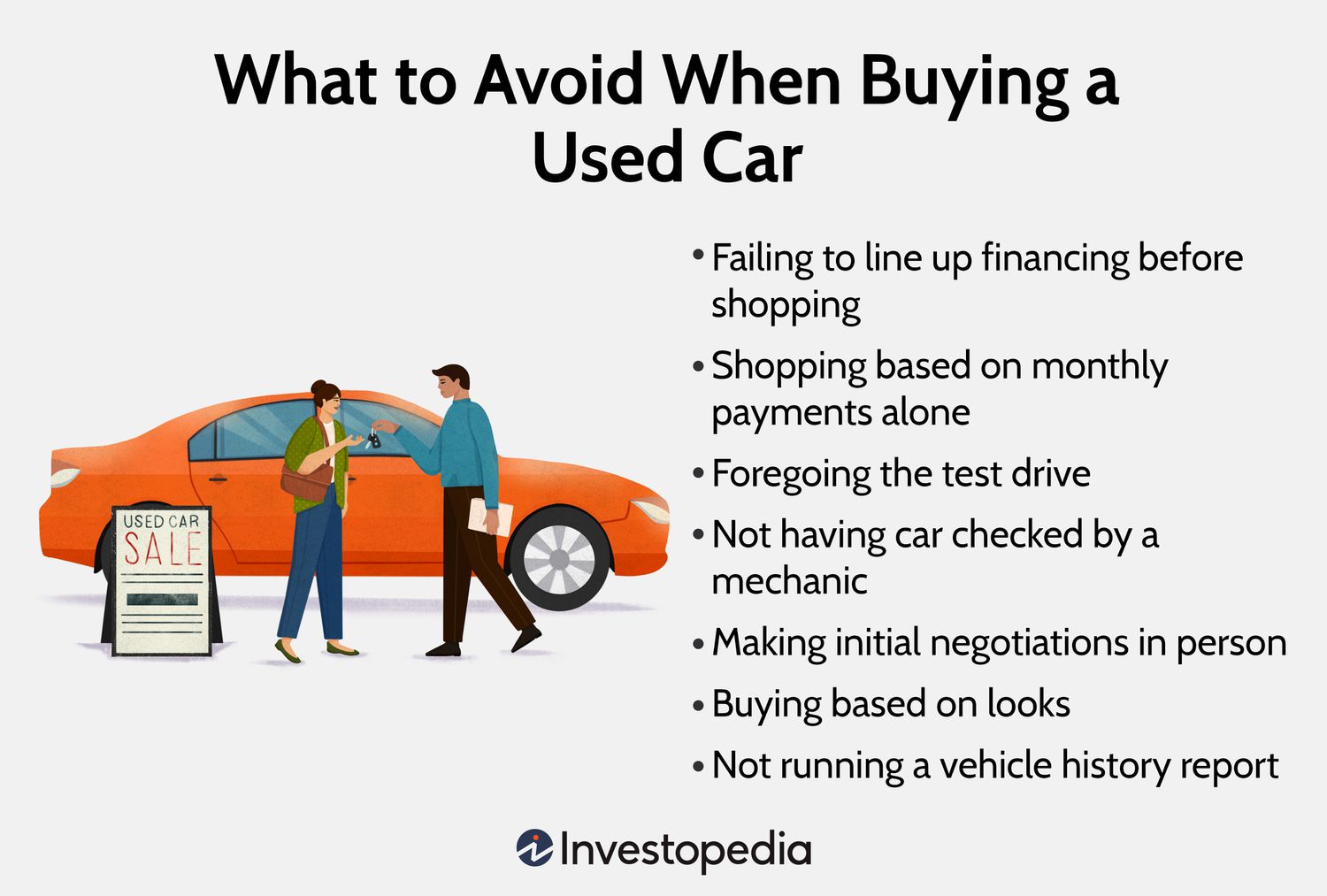Yes, when you buy a car from a private seller, you can typically drive it home immediately after purchase. However, it’s important to check your state’s regulations regarding temporary permits or plates for newly purchased vehicles.
Some states may require you to obtain a temporary permit to drive the car legally without plates. Additionally, ensure you have the necessary documentation, such as the bill of sale and proof of insurance, before driving the car home.
It’s always a good idea to confirm the specific requirements in your state to avoid any legal issues while driving your newly purchased vehicle.
Introduction To Private Car Sales | Buy a Car From a Private Seller
After purchasing a car from a private seller, you can typically drive it home without plates by obtaining a temporary permit. This permit allows you to legally operate the vehicle until you can register it and get permanent plates from the DMV.
When purchasing a car from a private seller, there are several important considerations to keep in mind. Unlike buying from a dealership, the process of buying from a private seller involves additional responsibilities and steps that the buyer must take.
From initial considerations to understanding the benefits of this approach, it’s crucial to be well-informed before making a decision.
Initial Considerations
Before driving a car purchased from a private seller, it’s essential to ensure that all necessary paperwork is in order. This includes the bill of sale, title transfer, and any temporary permits required by the state.
Additionally, buyers should consider arranging for insurance coverage before driving the car off the seller’s property to avoid any potential legal issues.
Benefits Of Buying From A Private Seller
Buying a car from a private seller offers several benefits, including potentially lower prices compared to dealership purchases. Private sellers may also provide more flexibility in negotiations and offer a wider selection of vehicles, including rare or unique models.
Furthermore, the absence of dealership fees and overhead costs can result in cost savings for the buyer.
Finding The Right Car
When it comes to purchasing a car from a private seller, finding the right one is crucial. Research and selection play a significant role in this process. It’s essential to explore various options and consider the specific requirements to ensure that the chosen vehicle meets your needs and preferences.
Research And Selection
Before making a purchase from a private seller, thorough research and careful selection are imperative. Start by determining the make, model, and features you desire in a vehicle.
Consider factors such as fuel efficiency, safety ratings, and maintenance costs. Utilize online resources and car review websites to gather information about different models and their performance.
Online Marketplaces And Listings
Online marketplaces and listings provide a vast array of options when searching for a car from a private seller. Platforms like Craigslist, Facebook Marketplace, and local classified ads offer numerous listings.
Utilize specific search filters to narrow down the options based on your preferences. It’s essential to thoroughly review the details, images, and seller ratings to make an informed decision.
Initial Contact With The Seller
After purchasing a car from a private seller, you can drive it home without plates by obtaining a temporary permit from the seller. Make sure to check with your state’s DMV for any specific requirements before driving the car off.
Making The First Call
When you decide to buy a car from a private seller, the initial contact is crucial. Making the first call sets the tone for the transaction.
What To Ask Before Viewing
Before viewing the car, it’s essential to ask the seller important questions to ensure a smooth process. Inquire about the vehicle’s condition, maintenance history, and any issues.

Viewing And Inspecting The Car
After purchasing a car from a private seller, driving it home without plates can be tricky. Some states allow temporary permits from the dealer, while others require a visit to the DMV for a permit. It’s crucial to research the specific regulations in your state to ensure a smooth transition.
Scheduling A Meetup
When buying a car from a private seller, it is important to schedule a meetup to view and inspect the car in person. You can arrange a time and place that works for both parties, such as a public parking lot or the seller’s residence. It is a good idea to choose a well-lit area where you can inspect the car closely.
What To Look For During Inspection
During the inspection, there are several things to look for to ensure the car is in good condition. First, check the exterior for any damage or rust. Then, open the hood and inspect the engine, checking for any leaks or signs of wear and tear.
Take the car for a test drive, paying attention to how it handles, brakes, and accelerates. It is also important to check the interior, including the seats, dashboard, and electronics. Finally, consider having a mechanic inspect the car to identify any potential issues before making an offer.
When viewing and inspecting a car from a private seller, it is crucial to thoroughly examine the car to ensure it is in good condition. By scheduling a meetup and knowing what to look for during the inspection, you can make an informed decision when purchasing a used car.
Test Driving The Vehicle
After purchasing a car from a private seller, you can drive it home without plates by obtaining a temporary permit from the seller. This allows you to legally operate the vehicle until you can obtain permanent registration. Remember to check with your state’s DMV for specific guidelines.
Test Driving the Vehicle
Arranging a Test Drive
Before purchasing a car from a private seller, it’s essential to arrange a test drive. This will allow you to evaluate the car’s performance and determine whether it’s suitable for your needs. To arrange a test drive, contact the seller and request a time and place to meet. It’s important to choose a safe location and ensure that you have a valid driver’s license and insurance. Once you meet the seller, inspect the car thoroughly before taking it for a test drive.
Assessing Car Performance
During the test drive, assess the car’s performance by testing its acceleration, braking, and steering capabilities. Pay attention to any unusual noises or vibrations and take note of how the car handles on different road surfaces.
If you’re not comfortable driving the car, you can ask the seller to drive it for you while you observe from the passenger seat. Additionally, consider bringing along a trusted mechanic to inspect the car’s mechanical and electrical systems.
After the test drive, evaluate your experience and decide whether the car meets your expectations. If you’re satisfied with the car’s performance, you can proceed with the purchase. However, if you have any doubts or concerns, it’s best to continue your search for a suitable vehicle.
In conclusion, test driving a car before purchasing it from a private seller is crucial. It allows you to assess the car’s performance and determine whether it’s suitable for your needs. By following the steps outlined in this article, you can ensure a safe and successful test drive experience.

Getting A Professional Mechanic Inspection
Before driving a car bought from a private seller, it’s wise to get a professional mechanic inspection to ensure it’s safe and in good condition. This helps avoid any potential issues and gives peace of mind when driving it home.
Negotiating The Sale Price
When buying a car from a private seller, negotiating the sale price is a crucial step in the purchasing process. It’s essential to approach this negotiation with a clear strategy to ensure you get a fair deal and are satisfied with the final price.
How To Negotiate Effectively
Effective negotiation involves thorough research on the market value of the vehicle, understanding the condition of the car, and being prepared to walk away if the seller’s price does not align with your budget.
Begin by presenting a reasonable offer based on your research and be open to counter offers. Remember to stay polite and respectful throughout the negotiation process.
Agreeing On Payment Terms
Once you’ve agreed on the sale price, it’s crucial to determine the payment terms. Discuss the preferred method of payment, whether it’s a cashier’s check, cash, or a bank transfer. Ensure that both parties are clear on the payment process, including any deposit requirements and the timeline for finalizing the transaction.

Paperwork And Legal Considerations
After purchasing a car from a private seller, you may need to consider the paperwork and legal aspects before driving it home. Ensure you have the signed title, bill of sale, and any temporary permits required by your state’s DMV to legally drive the vehicle.
Title Transfer Process
When purchasing a car from a private seller, the title transfer process is a crucial step in ensuring the legal ownership of the vehicle. It involves transferring the title from the seller to the buyer, and this process varies from state to state.
It typically requires the completion of specific forms and payment of any applicable fees to the local Department of Motor Vehicles (DMV).
Before driving the car home, it’s essential to ensure that the title transfer process is initiated and completed according to the regulations of the state in which the transaction takes place. Failure to do so can result in legal complications and may prevent the new owner from registering the vehicle in their name.
Bill Of Sale And Other Documents
Along with the title transfer, obtaining a bill of sale and other essential documents is paramount when purchasing a car from a private seller.
The bill of sale serves as a legal document that records the transaction details, including the purchase price, vehicle identification number (VIN), and the names and signatures of both the buyer and the seller.
In addition to the bill of sale, other documents such as the vehicle’s maintenance records, service history, and any warranty information should be obtained from the seller.
These documents can provide valuable insights into the condition and maintenance of the car, which is crucial for making an informed purchasing decision and ensuring a smooth transition of ownership.
Handling Registration And Plates
After purchasing a car from a private seller, you can drive it home without plates by obtaining a temporary permit. This permit allows you to legally operate the vehicle until you can secure proper registration. Make sure to check with your state’s DMV for specific requirements.
Temporary Permits And Tags
When buying a car from a private seller, you may need a temporary permit to drive it home if plates are not available.
State Dmv Requirements
Each state has different regulations regarding temporary permits and tags for driving a newly purchased vehicle.
Taking Possession Of Your New Car
When buying a car from a private seller, taking possession of the vehicle is an important step. It involves finalizing the sale, arranging insurance, and preparing to drive your new car home. Here’s what you need to know about taking possession of your new car.
Finalizing The Sale
Once you’ve inspected the car, negotiated the price, and agreed to the terms of the sale with the private seller, it’s time to finalize the sale. This typically involves completing the necessary paperwork, such as the bill of sale and the vehicle title transfer.
Ensure that all the required documents are properly signed and notarized, and that you have obtained a valid receipt for the transaction.
Insurance And Driving Home
Prior to driving your new car home, it’s crucial to have insurance coverage in place. Contact your insurance provider to add the newly purchased vehicle to your policy or to obtain temporary insurance for the drive home.
Some insurance companies offer immediate coverage for new car purchases, while others may require you to provide specific details about the vehicle before extending coverage.
It’s important to be aware of the legal requirements regarding driving a newly purchased car without plates in your state. In some states, temporary permits are available for newly acquired vehicles that allow you to drive the car home or to the DMV for registration.
Check with your state’s DMV to understand the regulations and obtain any necessary permits before driving the car.
Frequently Asked Questions
Can I Drive A Car I Just Bought Without Plates In Missouri?
In Missouri, upon purchasing a newly acquired motor vehicle, trailer, or cycle, you may obtain a temporary permit from the dealer to operate the vehicle when no plates are available for transfer. This permit allows you to legally drive the car until you can get regular license plates.
Can I Drive A Car I Just Bought Without Plates In Indiana?
No, you cannot drive a car you just bought without plates in Indiana. You must have either temporary plates or permanent plates properly registered to the vehicle before driving it on public roads.
It is recommended to obtain temporary plates from the dealer or check with the DMV for any other temporary permit options.
Can I Drive A Car I Just Bought Without Plates In Nc?
You can drive a car you just bought without plates in NC if you have temporary tags provided by the dealer.
Can I Drive A Car I Just Bought Without Plates In Utah?
Yes, you can drive a car you just bought without plates in Utah by obtaining a temporary permit from the DMV.
Can I Drive A Car Without Plates After Buying From A Private Seller?
Yes, you may need to get a temporary permit or tags.
Conclusion
Buying a car from a private seller and driving it home can be done legally in many states. However, it’s important to check the specific regulations in your state regarding temporary permits or tags.
Remember to ensure you have the necessary documentation, such as a bill of sale and proof of insurance, before driving the vehicle home.

